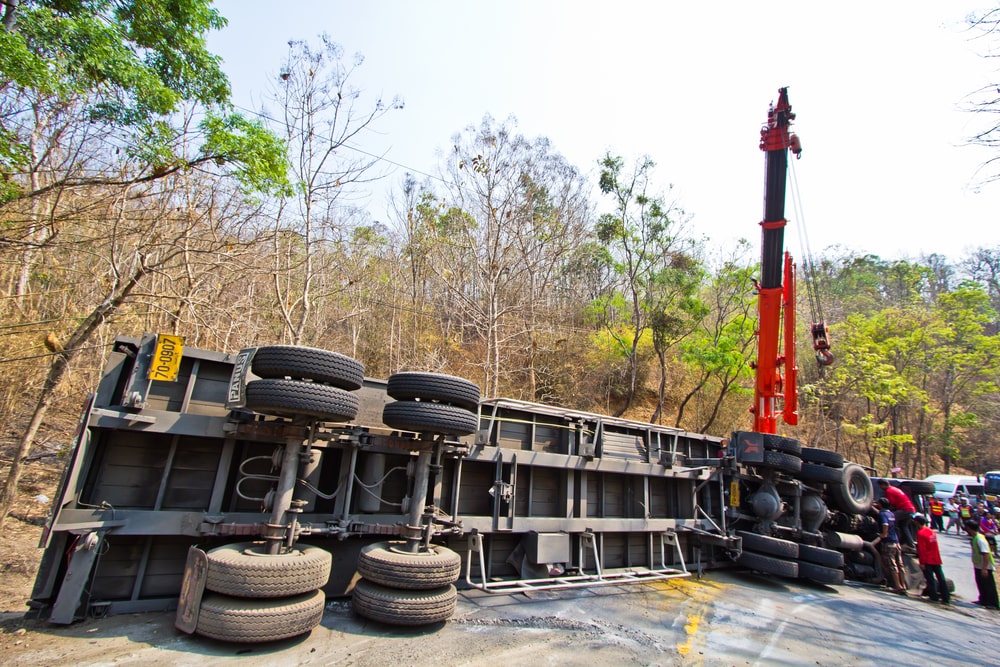Truck accidents can cause severe injuries and extensive property damage due to the sheer size and weight of commercial trucks. Navigating the aftermath of such an accident is often overwhelming, especially when dealing with insurance companies that aim to minimize their payouts. This is where truck accident lawyers come in, using their expertise to negotiate effectively with insurance companies and secure fair compensation for their clients. Here’s a detailed look at how truck accident lawyers handle negotiations with insurance companies.
Understanding The Complexity Of Truck Accidents
Truck accidents involve unique complexities that set them apart from standard car accidents. Multiple parties, such as the truck driver, trucking company, vehicle manufacturer, and even cargo loaders, can be liable. Truck accident lawyers have the knowledge and experience to identify all liable parties and hold them accountable. They understand federal and state regulations governing the trucking industry, which is crucial in establishing negligence and liability.
Gathering Comprehensive Evidence
One of the first steps a truck accident lawyer takes is gathering and preserving evidence. This includes obtaining the police report, medical records, and witness statements. Lawyers also secure data from the truck’s electronic logging device (ELD), which records information about the truck’s speed, braking, and hours of service. This data can be critical in proving the truck driver’s negligence.
Calculating The Full Extent Of Damages
Truck accident lawyers ensure that all damages are accurately calculated. This includes not only immediate medical expenses and property damage but also long-term costs such as future medical treatment, rehabilitation, lost wages, and diminished earning capacity. Lawyers also account for non-economic damages like pain and suffering, emotional distress, and loss of enjoyment of life. By presenting a detailed and substantiated claim, lawyers make it harder for insurance companies to undervalue or deny compensation.
Negotiating With The Insurance Company
Insurance companies often employ tactics to minimize their payouts, such as offering quick, lowball settlements. Truck accident lawyers counter these tactics with their negotiation skills and legal knowledge. Here’s how the negotiation process typically unfolds:
- Initial Demand Letter: The lawyer sends a demand letter to the insurance company, outlining the facts of the case, the evidence gathered, and the compensation sought. This letter sets the tone for negotiations and demonstrates the strength of the claim.
- Insurance Company’s Response: The insurance company reviews the demand letter and usually responds with a counteroffer, often lower than the demanded amount. This is a starting point for negotiations.
- Back-and-Forth Negotiations: The lawyer and the insurance adjuster engage in a series of negotiations, presenting evidence and arguments to justify their respective positions. The lawyer’s goal is to highlight the strength of the evidence and the validity of the claim, pushing for a fair settlement.
- Using Litigation as Leverage: While many cases are settled out of court, the willingness to go to trial can be a powerful negotiation tool. Insurance companies prefer to avoid the costs and uncertainties of litigation. A lawyer’s readiness to litigate if necessary demonstrates their commitment to securing fair compensation, often leading to a better settlement offer.
Conclusion
Negotiating with insurance companies after a truck accident requires a strategic and informed approach. Truck accident lawyers from Strong Law leverage their expertise, comprehensive evidence, and negotiation skills to secure fair compensation for their clients. By understanding the complexities of truck accidents and the tactics used by insurance companies, lawyers can effectively advocate for their clients’ rights and ensure they receive the compensation they deserve.


EXCELLENTTrustindex verifies that the original source of the review is Google. Justice was very informative & kind & went above & beyond for me in every way she could . I highly recommend this attorney!!!!Posted onTrustindex verifies that the original source of the review is Google. Had an initial consult with the paralegal this morning. She was so polite, and very helpful. Listened, took my info and made the process very easy, in an area where I have a tough time finding attorney's. Thank YouPosted onTrustindex verifies that the original source of the review is Google. Mrs Hall did a great job in helping me get the best outcome for my case. I highly recommend her services.Posted onTrustindex verifies that the original source of the review is Google. I was fortunate to receive help from Susannah and her team. Susannah is a highly knowledgeable expert in her field. Although my requests was relatively straightforward for such an experienced professional, Susannah and her team provided me with outstanding support and answered all of my questions. I recommend discussing your specific situation with Susannah—even if it feels stressful—because she is excellent at analyzing circumstances and presenting clear options and potential actions. I have no doubt that Susannah and her team have the expertise to provide the best insight and guidance in their field.Posted onTrustindex verifies that the original source of the review is Google. Process went smoothlyPosted onTrustindex verifies that the original source of the review is Google. Susannah Hall-Justice is an amazing attorney! She was on top of things every step of the way and I am very thankful for her!Posted onTrustindex verifies that the original source of the review is Google. I am currently a client of hers. I do get nervous going to court or just simply meeting with her as my lawyer because I never had to be in a situation that required me to need a lawyer! I feel safe with Ms. Hall-Justice because you can just tell she has your best interest! She listens, observes and make sure you are heard! I am praying to God I don’t have to look like what I’m going through because it’s stressful and I just want to go back to my regular life with my children!Posted onTrustindex verifies that the original source of the review is Google. This attorney is definitely a credit to her craft! She is very personable and never talks down to a client. She makes a person feel like he/she is actually part of what's going on. She negotiated with the prosecutor and i was offered EVERYTHING that I had hoped for and even more! I would definitely hire her again and i highly recommend that you hire her and trust her in what is often a very vulnerable and confusing time.Posted onTrustindex verifies that the original source of the review is Google. When we needed a Lafayette attorney to represent us for various charges, Susannah was all we could have hoped for. She had several charges dropped immediately and the remaining minor charges diverted for good behavior. After two months of good behavior, all charges were dismissed. Susannah and her assistant Erica were responsive, supportive and above all very effective. All at very reasonable rates. I have worked as a criminal defense lawyer in the past and I was very impressed.Posted onTrustindex verifies that the original source of the review is Google. Impressive and refreshing. I called Susannah’s office first thing in the morning to inquire about a minor legal service and left my contact information with her assistant. Susannah personally called me back only a short while later despite how busy she undoubtedly is. It turned out that the legal opinion I required had to be from a practicing attorney in a different state so we didn’t go forward. Still, the fact that she personally returned my call, and was genuinely pleasant and attentive, substantiates her very positive and personal reviews. Not to stray into the negative but what a breath of fresh air compared to most of the attorneys with whom I’ve spoken in this area - routinely terse, rude and bumptious. This (Hall-Justice) is the law office I will call first for any future legal needs. Thank you.



